It is said that the next wars will not be over gold and diamonds, oil or food, but water. Already, two billion people are without a ready water supply; that is one in four people.
For the other three-quarters, the quality of the water they get is highly suspect, laced with plastic microparticles, spent medicines and even artificial sweeteners. Then any organic material in the water combines with chlorine to produce highly toxic THMs.
Several experiences brought us to where we are today.
Our journey with water woes goes back about 40 years while living in Chicago for four years. The city gets its water from a cesspool called Lake Michigan. It’s almost undrinkable, but there is a plentiful supply. At considerable expense we bought “spring water”, unaware what else might be lurking in it, but it did taste better.
Then, while living in the Netherlands about 20 years ago, we found the Dutch are the world’s masters of water management. Unable to afford a car, we cycled everywhere and so discovered something quite strange: underground reservoirs in the gardens of many old homes to store rainwater harvested from the roofs.
On our return to South Africa we were met by a disastrous state of water affairs – droughts, day-zeroes, water shortages, polluted tap water and appalling stories of mismanagement; the suffering of the rural poor who simply had no water and constant complaints from the cities about the availability and quality of our water.
So, like our farmers, we decided we’d better make a plan. Discussions with a friend who is a civil engineer quickly made it clear that building an underground reservoir was neither expensive nor was it rocket science. It used readily available local materials and would provide work for some skilled bricklayers and plasterers.
And so began some thinking. How much water did we need? Was it safe to drink? How big was our roof and how much could we expect to harvest from a storm dropping, say, 25mm on our roof? Eventually, we settled on a circular tank, 4m in diameter and 2m deep, with a sump on the side into which the rainwater would initially settle before overflowing through a coarse filter into the main reservoir.
From start to finish, it took two weeks and cost R15,000, including the pump, if my memory serves me correctly. Three days for four strong men to dig the hole, another day to lay the reinforced foundations, and about another week to build a reinforced double-brick wall. A few more days to put on the Chromadek roof supported by treated gum poles, and plaster the walls.
Plastering was the only challenge and it proved to be an expensive one. Poor communication between myself and the plasterer meant that only one of eight containers of sealant was put in the mix. The reservoir leaked – badly.
The roof had to come off and the whole structure was fibreglassed, something like a swimming pool. That cost another R15,000. In retrospect, it may have been a blessing in disguise; we have zero leaks, as most reservoirs have.
Trenches were dug from six downpipes carrying the water in standard 110mm underground sewerage piping to the sump. Where those pipes ran into some gullies proved problematic; with gentle rain a considerable amount of water was lost, and continues to be troublesome. A 25mm downpour puts a lot more water into the reservoir than a 25mm drizzle.
Fifty millimetres of heavy rain will fill the reservoir; it is about 27,000 litres and has run dry only twice in nine years, for a month each time at the height of two droughts.
Then there was the provision of a pump, an electrical supply and piping into the reticulation of our home, and to the garden. We had the water tested and I could drink it without reservation, but the good wife “thought” it gave her diarrhoea. She boiled the water, and eventually we put in a filtration system and UV steriliser. I’m not convinced it was necessary, but it brought peace of mind. She still gets the runs now and then and continues to boil the water.
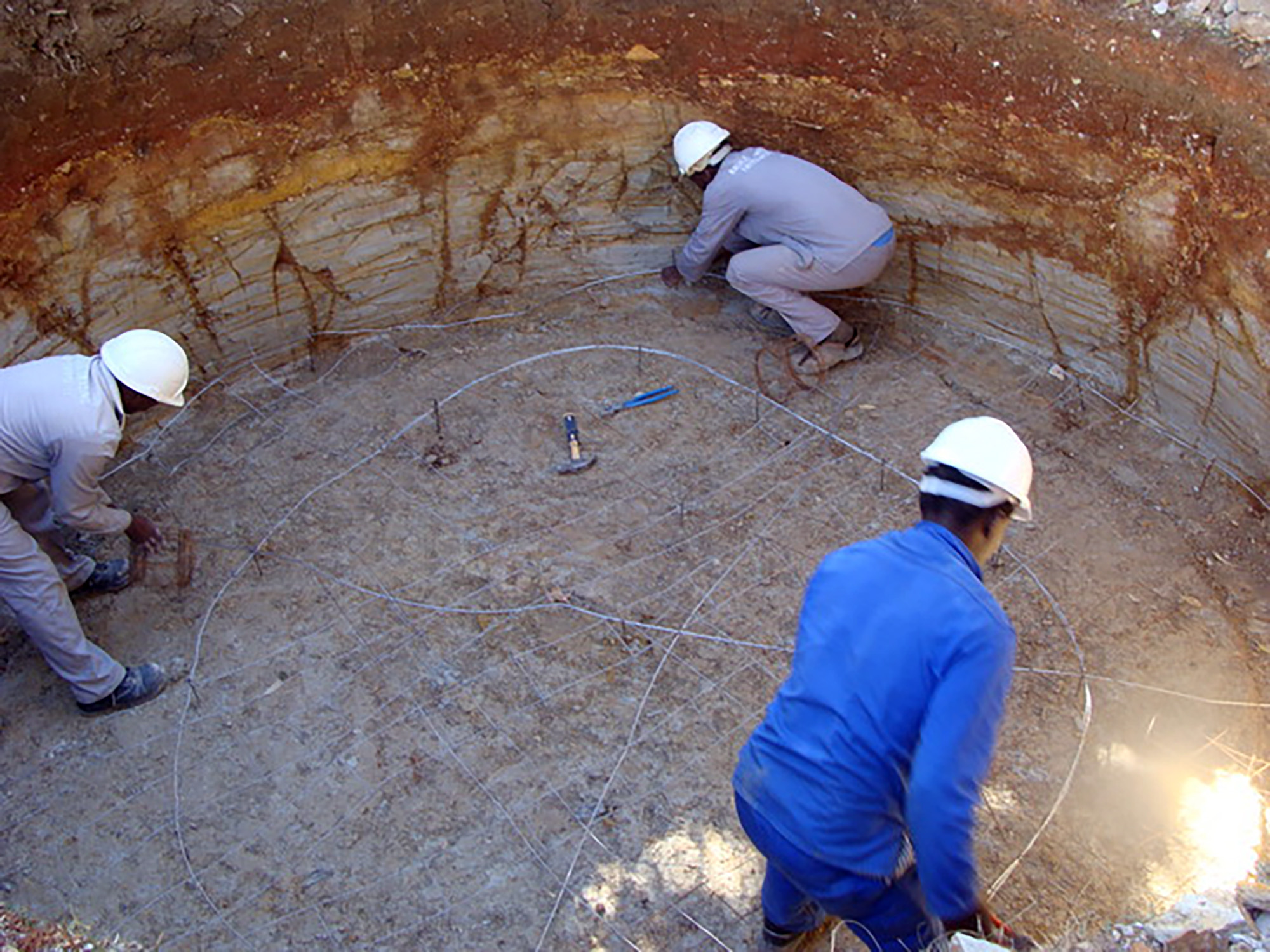 Laying the reinforced concrete base. (Photo: Barrie Lewis)
Laying the reinforced concrete base. (Photo: Barrie Lewis)
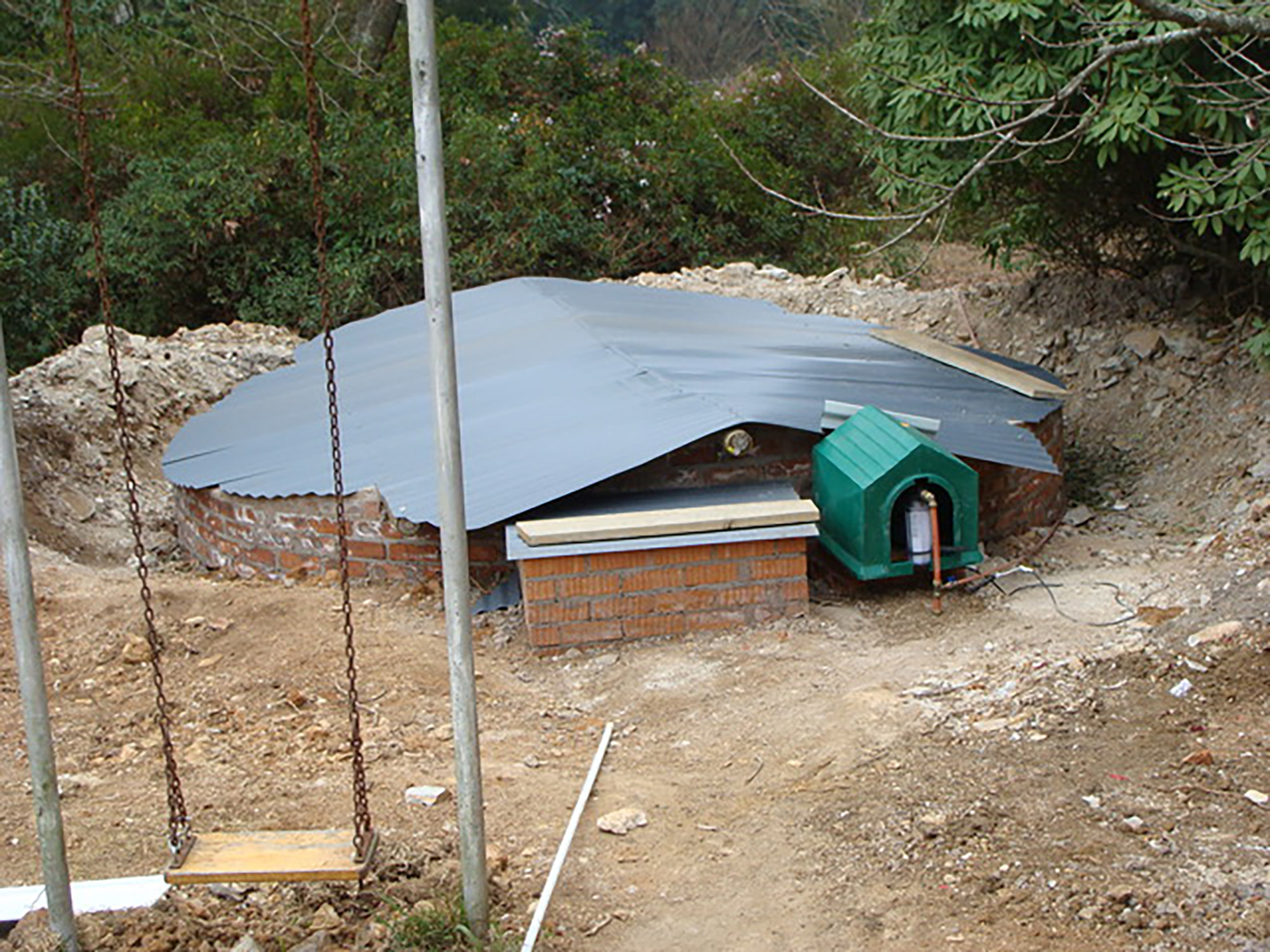 Inspired by his experience in the Netherlands, Barrie Lewis built an underground reservoir to harvest and store rainwater. (Photo: Barrie Lewis)
Inspired by his experience in the Netherlands, Barrie Lewis built an underground reservoir to harvest and store rainwater. (Photo: Barrie Lewis)
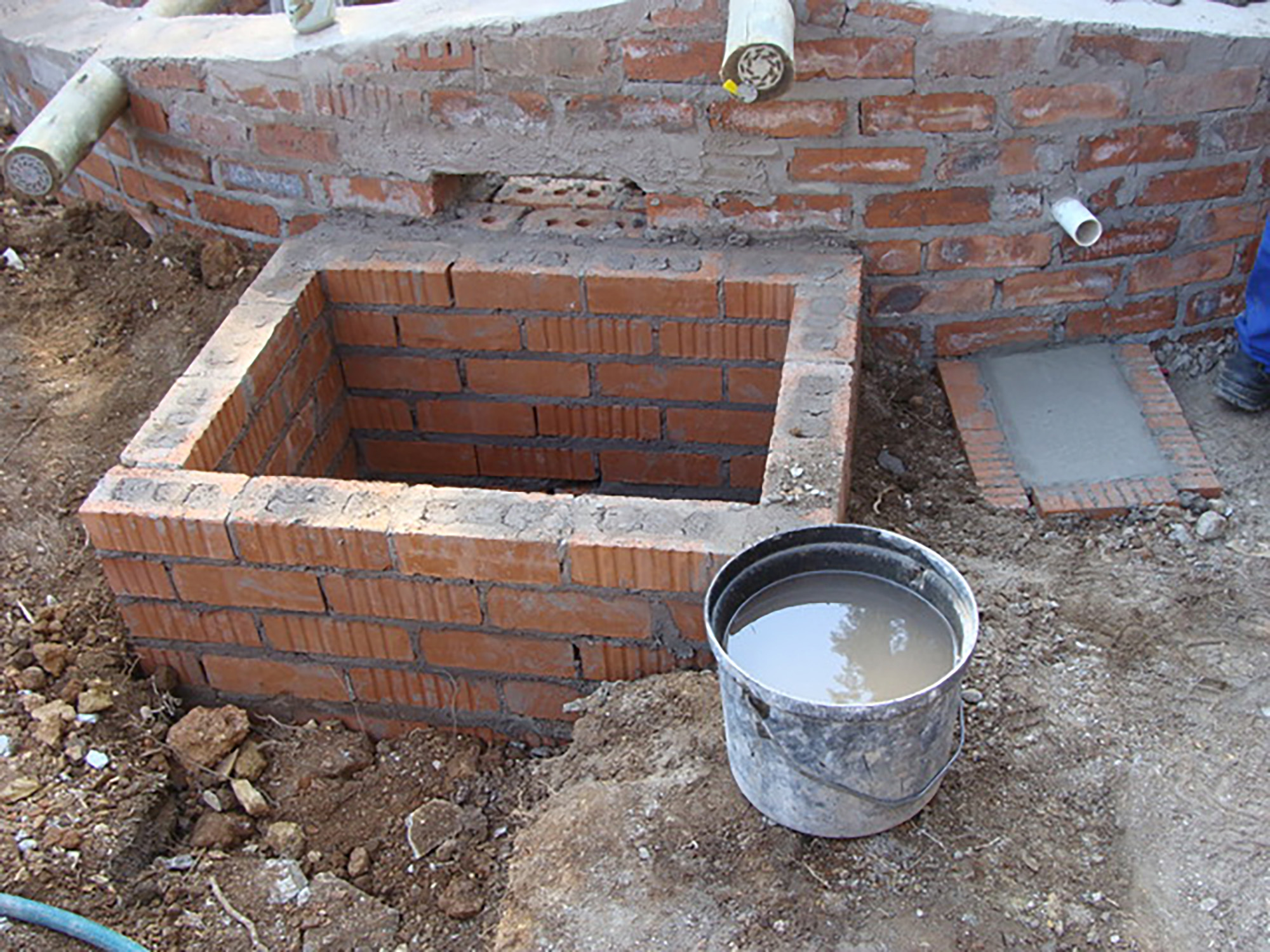 The trap for collecting detritus from the roof and gutters. (Photo: Barrie Lewis)
The trap for collecting detritus from the roof and gutters. (Photo: Barrie Lewis)
If I was to do it again, what would I change anything?
Well, I think I would make the radius 2.5m and I would be more careful of sealing all the joints and having the plastering done properly. We have some “range anxiety” at the end of the dry season.
Our current pre-reservoir sump is 600mm x 800mm by 1m deep; 600mm deep would be a lot simpler to clean. I start by syphoning the water out, climbing in and using a square, five-litre ice cream tub. And I would have gone straight to a Davey pump.
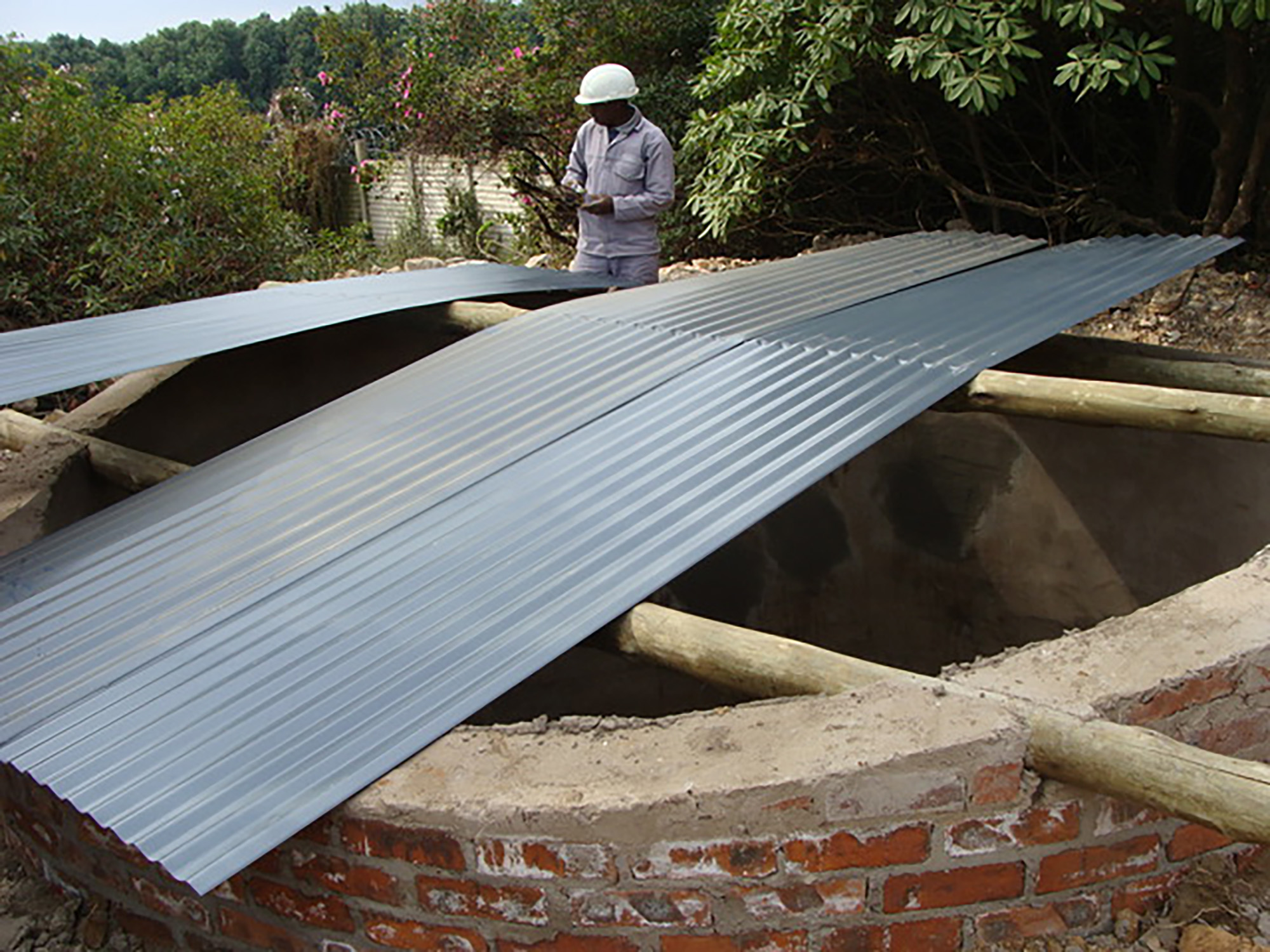 Preparing the roof of the reservoir. (Photo: Barrie Lewis)
Preparing the roof of the reservoir. (Photo: Barrie Lewis)
Is there a downside to having your own reservoir?
First, there is some danger for small children, even though it is covered. Mosquitoes have, not surprisingly, been a problem, but now and again a frog gets stuck in the reservoir and can’t get out. The biggest difficulty is that before the start of the rainy season you really have to get up a ladder and clean out the gutters properly; I then hose them down. All that dirty water ends up in the sump and is discarded. Every second year, perhaps third, you have to get into the reservoir and clean it out. Since we started with the coarse sieve (from a defunct grass-catcher box) in the overflow from the sump to the reservoir, there has been surprisingly little sediment; still it’s hard work.
We have a double-storey house, otherwise we might have considered pumping to a raised tank. If your reticulation develops any leaks then the pump starts to cycle frequently. But then the water would be warm. I’m happy with the way we have done it.
On the plus side are the joys of a full, indulgent shower and plenty of water for irrigating our vegetable garden, and water of pristine quality. One does normally get about 10% of one’s minerals from drinking water, but we have not had undue problems with cramps or osteoporosis.
I estimate we use at least 300kL per annum; at R32/kL that is a saving of about R10,000. For plentiful, pristine water.
I could pretend we did this to help save the planet, but in truth it was simply to have an ample, reliable source of clean water at a good price; and that we have. We are totally self-sufficient and the problems at Rand Water, or Umgeni Water, are not ours.
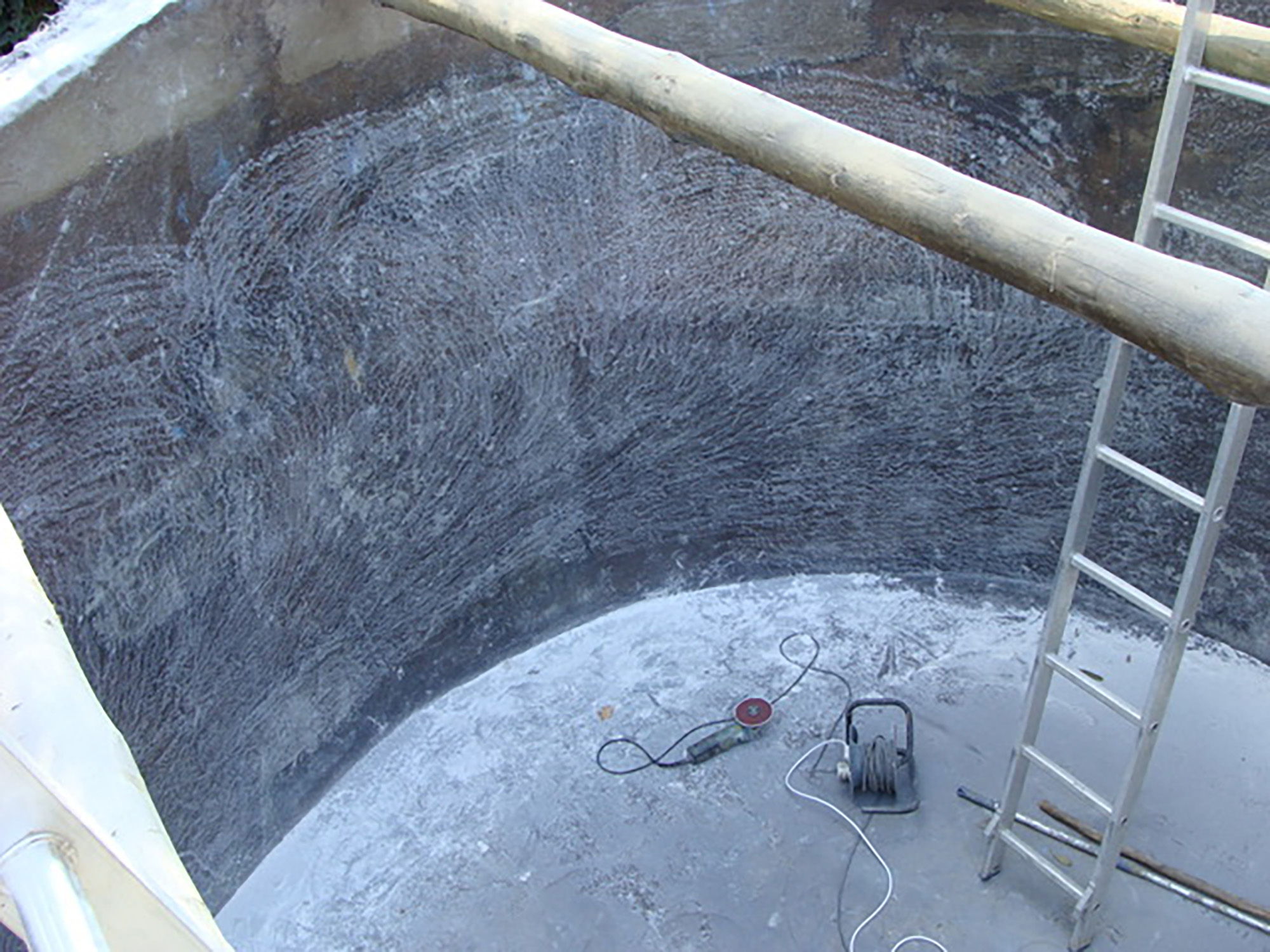 Fibreglassing the reservoir. (Photo: Barrie Lewis)
Fibreglassing the reservoir. (Photo: Barrie Lewis)
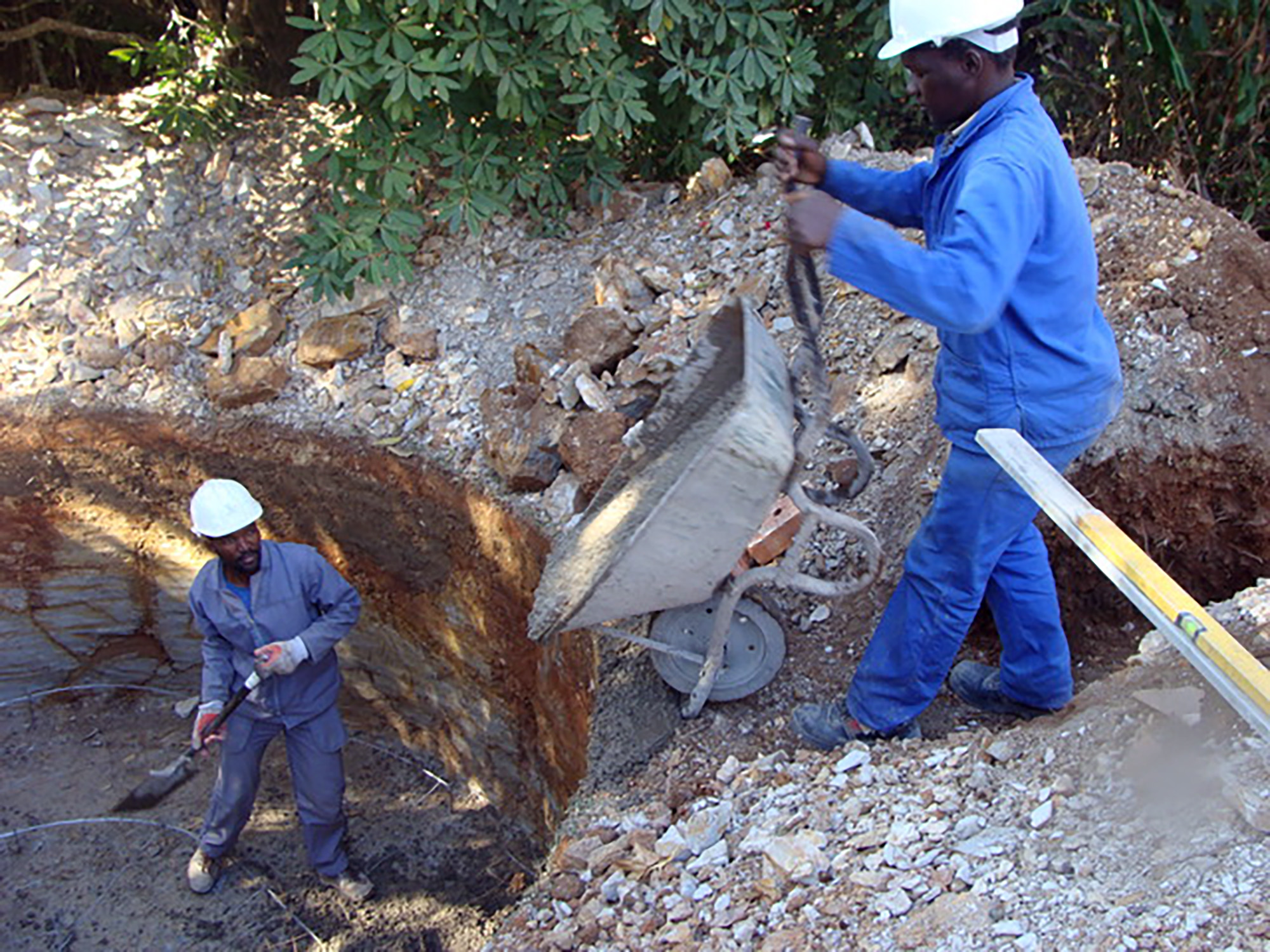 Plastering is critical to the success of the project. (Photo: Barrie Lewis)
Plastering is critical to the success of the project. (Photo: Barrie Lewis)
 A double-brick wall reinforced with brick force and steel wire. (Photo: Barrie Lewis)
A double-brick wall reinforced with brick force and steel wire. (Photo: Barrie Lewis)
The biggest sadness in all this is the general cynicism on the part of department of water officials who say that rainwater is not potable, and scientists at various universities who, with one exception, have been very dubious of the whole affair.
Worldwide, large storage reservoirs are reaching their sell-by date and very few new ones are being built. I see a massive crisis forming, not just in South Africa, in the not-too-distant future. And with the demand for water from agriculture and industry taking preference, urban dwellers will be forced to harvest and store rainwater, or go without.
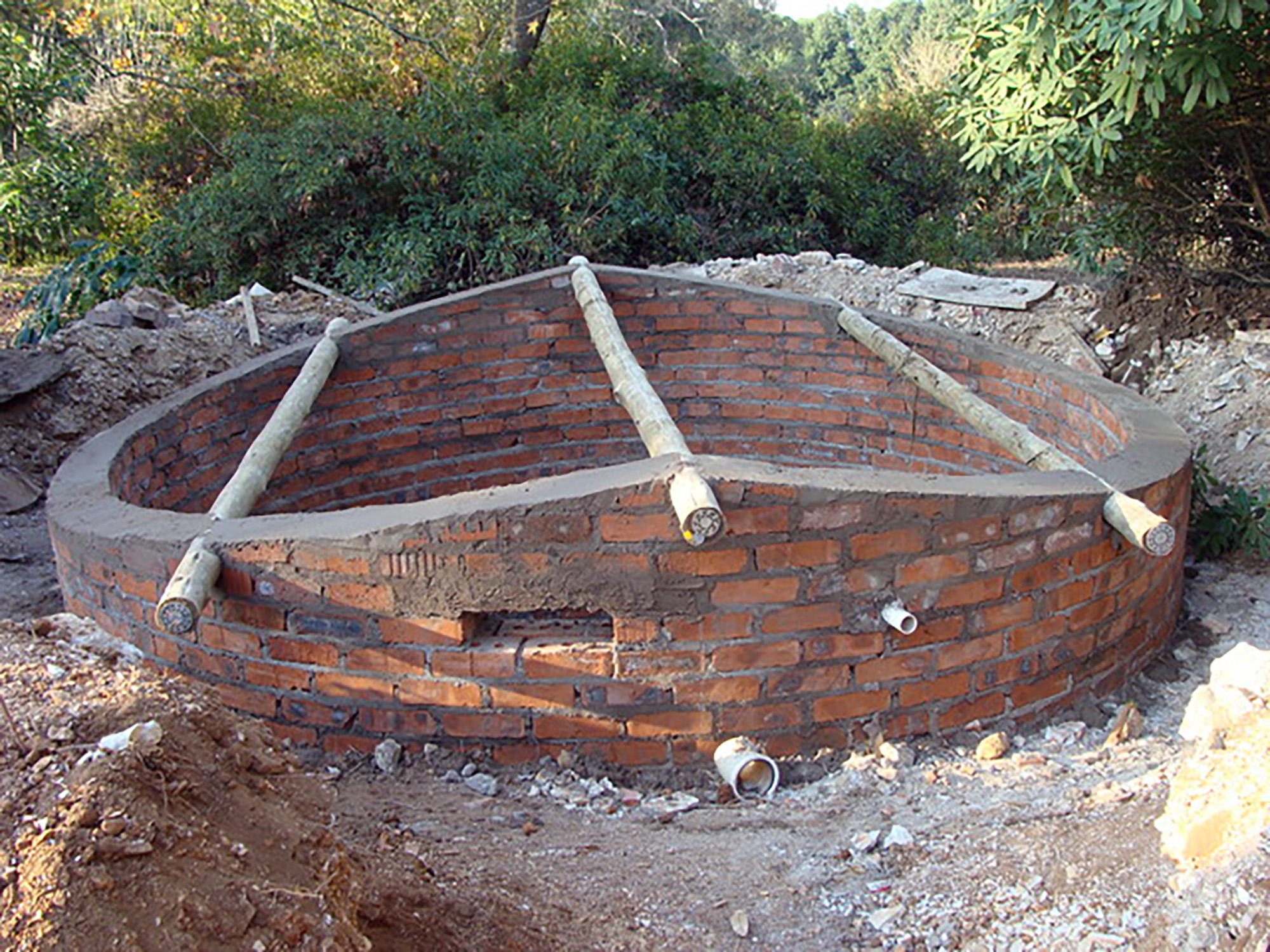 A double brick wall reinforced with brick-force and steel wire.Photo:Barrie Lewis
A double brick wall reinforced with brick-force and steel wire.Photo:Barrie Lewis
About 8% of rainwater actually reaches the large storage dams, I’m told. Water authorities may have some concern if literally hundreds of thousands of families started doing this. However, we don’t actually use that water; we simply divert it from the roof into a reservoir and through our homes and gardens, and it returns to Mother Earth.
Our underground reservoir is just one part of what we call building a “Cyan Zone” at our home. Cyan is a mixture of blue and green. In the Blue Zones of the world 10 times as many people live to vigorous and strong old age; that means growing and preparing much of our own food; our urban garden produces a massive surplus thanks to ample, free water – 150 butternut, for example.
In Green Zones, people care for the planet, doing their level best to do their part to hand over our once-pristine Mother Earth to our children’s children.
Teams of eight could build a reservoir like ours every two weeks. We envision hundreds of teams throughout the land, but there is little interest; the government must provide. A builder told me recently that the materials today would cost about R15,000. I did much of the plumbing and electrics myself. All in, today it might cost as much as R45,000.
Cyan Zone people care for themselves, their families and the planet. Ample clean water is central to our way of life. DM/OBP
Barrie Lewis graduated with a BSc, majoring in physics and chemistry, followed by a BEd before moving to Chicago to study chiropractic. He has spent 40 years in practice as a chiropractor.




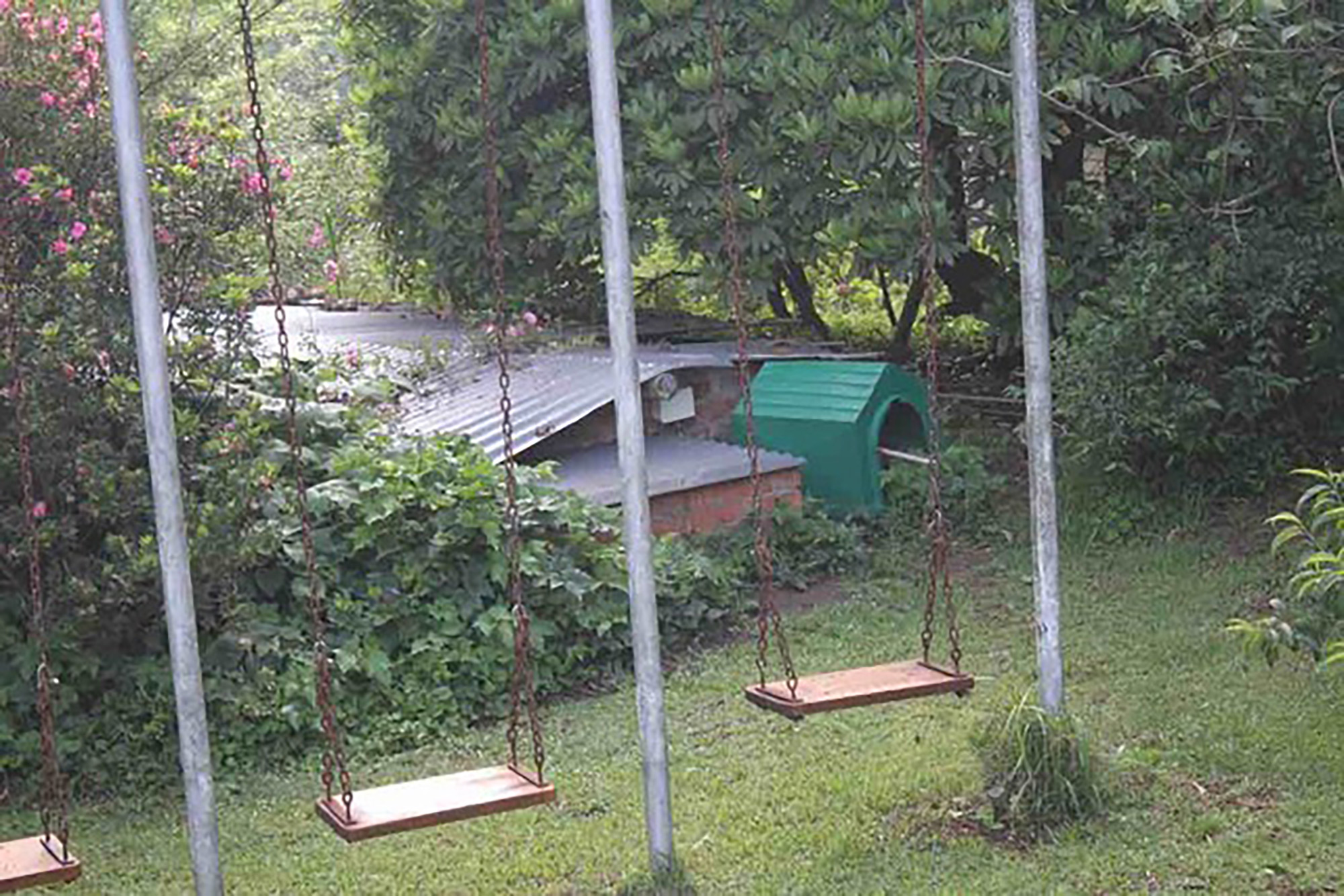 A double brick wall reinforced with brick-force and steel wire.Photo:Barrie Lewis
A double brick wall reinforced with brick-force and steel wire.Photo:Barrie Lewis